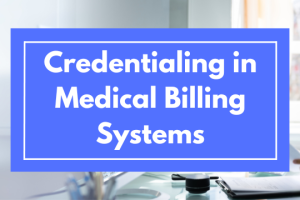Navigating Insurance Audits and Compliance
Insurance audits and compliance checks can be nerve-wracking, to say the least. Health insurance is complex, and it seems to be getting even more particular with each passing day. Every private practice will need to be prepared for the potential of insurance audits and other compliance inspections that may come up during normal business operations. Of course, that is often easier said than done.
Preparation and education are the two keys to success in navigating insurance and compliance as a private practitioner. The first thing that you need to know is who conducts audits and why they’re doing so. There are two main types of audits: routine audits and event-triggered audits. Each has its own considerations and compliance matters to know.
Who Conducts Insurance Audits?
In private practice, insurance audits are conducted by payors. This could be a commercial insurance provider or Medicare or Medicaid. If it’s the latter two, the audit will be performed by an independent contractor. Insurance companies may use internal employees or outsourced contractors. If your practice is chosen for an audit, you will typically be notified by the payor of the cause, the details of the audit, and who will be conducting it.
What Triggers an Insurance Audit?
As mentioned above, audits could be part of routine business. Some insurance companies perform random audits to check billing practices and look for inconsistencies in payments, or to make sure that providers are filing claims accurately. Others won’t perform an audit unless they have a specific concern or cause, also referred to as a trigger.
If your private practice deals with government entities like Medicare and Medicaid, you can almost guarantee audits at some point. However, they may also come up as an acute issue. Once an audit has been decided, the payor will send a letter of intent to inform the provider and have them start providing the required documentation.
What Do Auditors Want to Find?
Ultimately, auditors are hoping to find that billing is being done correctly and that insurance claims are being handled properly. They will be checking to make sure that there are no underpayments or claims that were paid when they shouldn’t have been. They can also look for miscalculations, errors in claims, and other issues.
While some providers feel that auditors are working against them, the process is designed to double-check things on both sides. This means that the payor might even find one of their own errors and that could result in the practice getting money back.
Preparing for a Health Insurance Audit
The best way to survive an audit is to be ready long before the thought even crosses a payor’s mind. Preparing in advance will help you anticipate the process, the expectations, and the paperwork that is involved (which can be quite daunting). Providers can read up on audit processes and even ask their payor what to expect during the audit so that there are no surprises. This also ensures that you have all the necessary paperwork available.
Some providers will do a mock audit of their own insurance management to make sure that things are in order, and everything is compliant. This can help to identify weak spots before they are discovered by the insurance company or start to cause issues with billing and payments. It’s also helpful to take a proactive approach by making sure that all paperwork is properly filed and that all documentation is readily available.
To help with that, investing in a practice management solution that includes compliance and audit resources is a great choice. These software platforms can be customized to the exact needs of your practice, and they can take care of everything from EHRs and revenue cycle management to billing, coding, and other tasks that can be automated and streamlined.
The Audit Process
Typically, an audit starts with the official letter of intent from the payor. This will include all the claims that are being audited and how providers can respond to the audit request, including what documentation will be required. From this point on, the entire process becomes time-sensitive.
For providers, the next (and most important) step is to start collecting documentation. This will require that you work with the health information management team or whoever oversees managing your records. Review and submit all the documents as requested, and then await a response. It’s important to review the information carefully for accuracy, but also to make sure that you get everything submitted by the deadline.
How ClinicMind Software Can Assist with Audits and More
ClinicMind offers a full-service EHR/RCM platform that provides a database of information, including insurance and patient records so that providers are always ready to collect and submit information for audit purposes. The platform has intuitive workflows and a user-friendly dashboard, and it can be customized into several iterations to work for all manner of private practices.
The ClinicMind platform will help streamline and manage the insurance billing and payments process, reducing errors and making it easier to provide accurate information in the event of an audit. Plus, our compliance experts will review everything and be available for additional support as needed.
Conclusion
Compliance is critical in private practice, and it’s especially important with insurance claims. Whether it’s for just cause or due to random selection, any practice could be up for audit at any point in time. That’s why it pays to be prepared and understand the audit process ahead of time. Having tools like a practice management platform can also ensure that your practice complies with all laws, healthcare guidelines and best practices, insurance requirements, and more.
It can be nerve-wracking to get a notice that an audit will be conducted by one payor or another. However, when you take the time to plan, it will be much less intimidating. Plus, you can utilize practice management platforms to help automate recordkeeping and compliance so that it’s less of a concern if an audit does arise.










